Boatbuilding
Boatbuilding is an important part of our Project and our Boatbuilding Workshop, which we run in partnership with our boatbuilding friends at Archipelago Folk School, is housed in the Scottish Maritime Museum (Denny Tank) in Dumbarton.

Skiffbuilding at the Skylark Boatbuilding Workshop
Here, Volunteer Trainees from Alternatives Community-based Recovery and Dumbarton Area Council on Alcohol (DACA) gain boatbuilding and joinery skills, confidence and purpose as part of their journey of recovery from addictions alongside other volunteers from the local community.
After completing ‘Happy Days’, our first 22ft St Ayles Rowing Skiff, we are now underway building two Canadian canoes, a ‘Prospector’ and a ‘Peterborough’.
Why build a Skiff?
Skylark IX was a pleasure boat for most of her life so we were inspired when we heard about a St Ayles Skiff named ‘Jenny Skylark’ over in Portobello, near Edinburgh, a place Skylark plied her trade during the late 1950s and 1960s.
It turns out, when RowPorty rowing club asked folk to suggest a name for their new skiff in 2011, fond memories of our Skylark IX ran deep!
When we learned about Dumbarton’s own proud rowing heritage too, we decided it was simple serendipity and added St Ayles Skiffs to our boat building programme!
How to Build a Skiff…
“We’ve built this amazing boat and built it the way our Volunteer Trainees wanted it to be built.” Jae, Skylark Boatbuilding Project Lead
The St Ayles Skiff has become hugely popular since it was commissioned by the Scottish Fisheries Museum and designed by renowned boat designer Ian Oughtred in 2009. Many coastal communities have discovered these four oar and a cox skiffs to be a cost effective way to establish rowing clubs and bring everyone together to enjoy the sport of rowing.
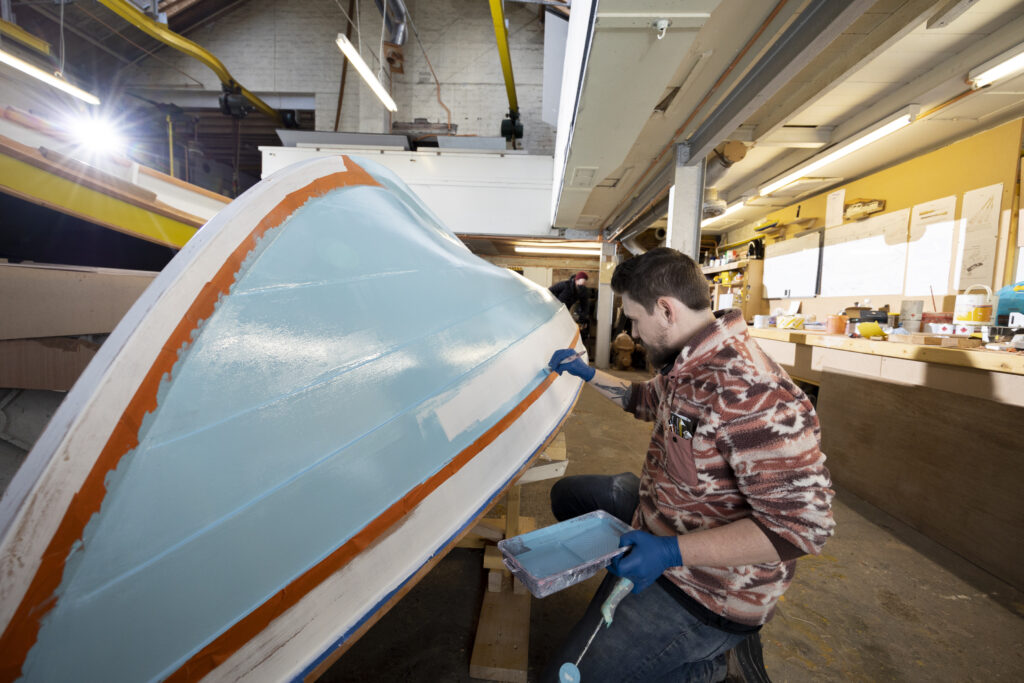
The lines of a St Ayles Skiff may be silky smooth but it is a complex build and crafting and outfitting one takes time. This makes it a great project for our Volunteer Trainees as they learn a wide range of valuable woodworking skills.

Community Boatbuilding Coordinator Rebecca and Volunteer Trainee James
Working painstakingly through the build stages with our Boatbuilding Project Lead Jae and Community Boatbuilding Coordinator Rebecca, our Volunteer Trainees are also able to add their own stamp, which is hugely important to them and us.
Build Stages
There are many detailed stages of construction but here’s a sail through the main tasks.

Jae, Skylark Boatbuilding Project Lead, begins constructing the build frame
First, we construct the build frame or ‘strongback’ and the frames or boat’s ‘ribs’.
Then we mount the moulds to the build frame. Our skiff build begins!
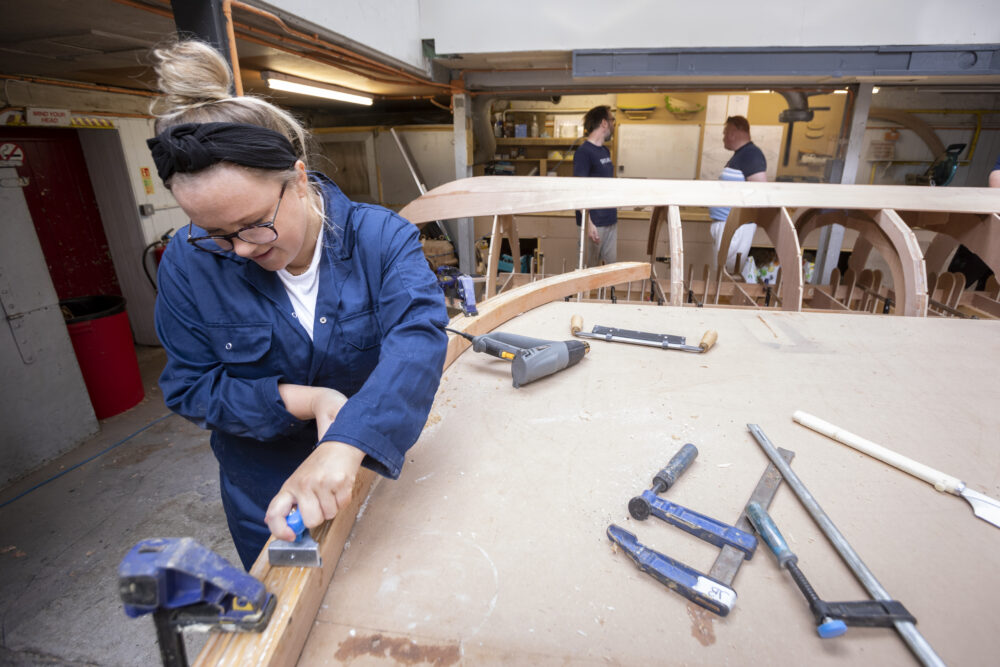 The planks or ‘garboards’ that form the hull fit into the stems (the curved timber at the bow) and hog (the timber running above the keel).
The planks or ‘garboards’ that form the hull fit into the stems (the curved timber at the bow) and hog (the timber running above the keel).
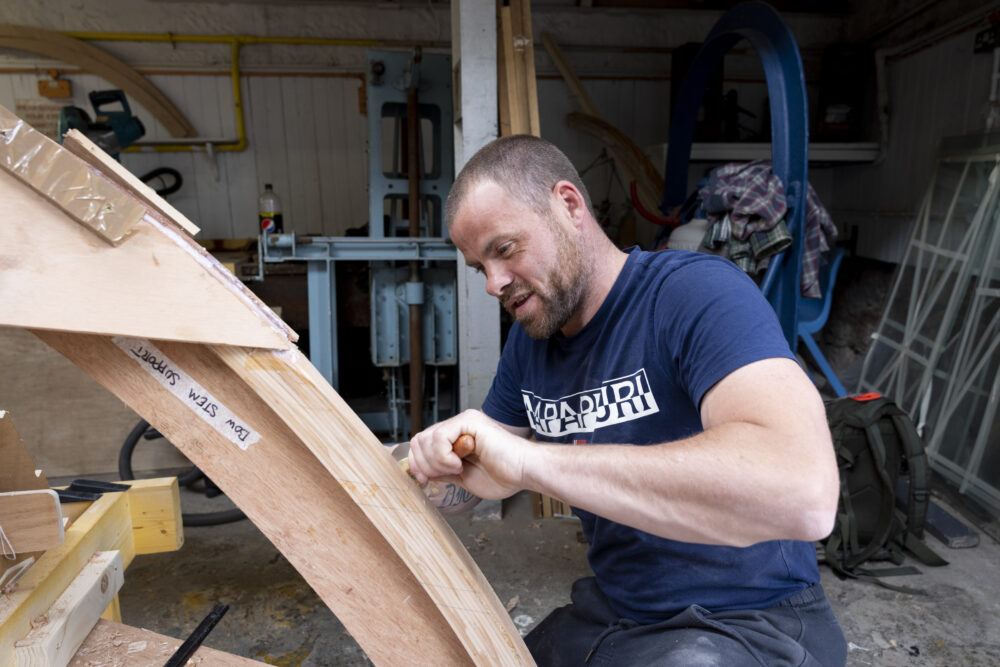 So we now prepare for this by laminating – a process of glueing, clamping and bending – the aprons and stems. We also add scarf joints into the planks.
So we now prepare for this by laminating – a process of glueing, clamping and bending – the aprons and stems. We also add scarf joints into the planks.
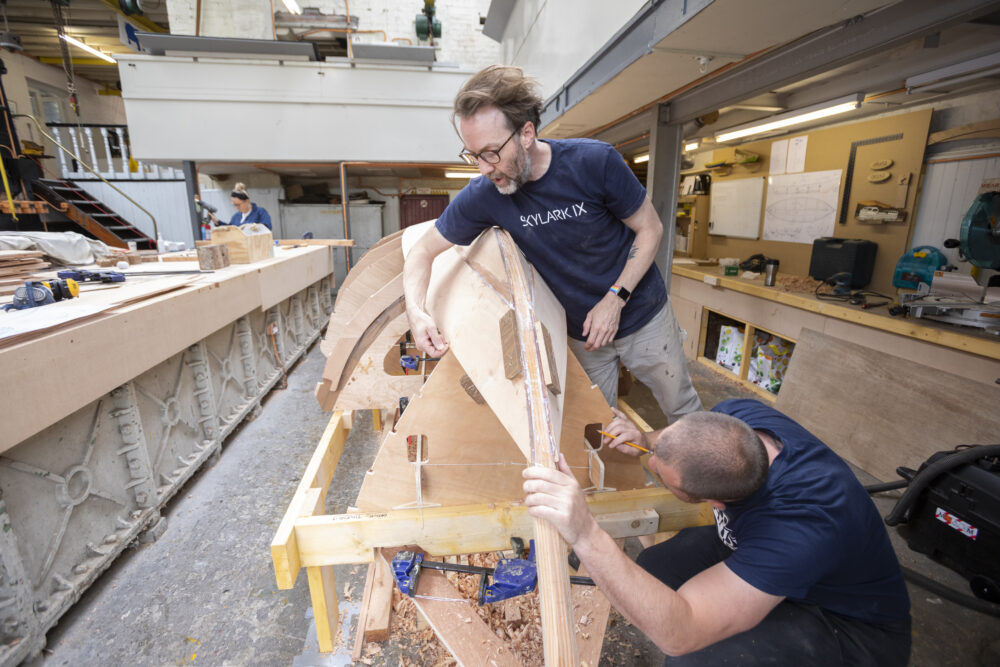 Now the real construction begins as we mount the aprons and hog to complete the skiff’s backbone.
Now the real construction begins as we mount the aprons and hog to complete the skiff’s backbone.
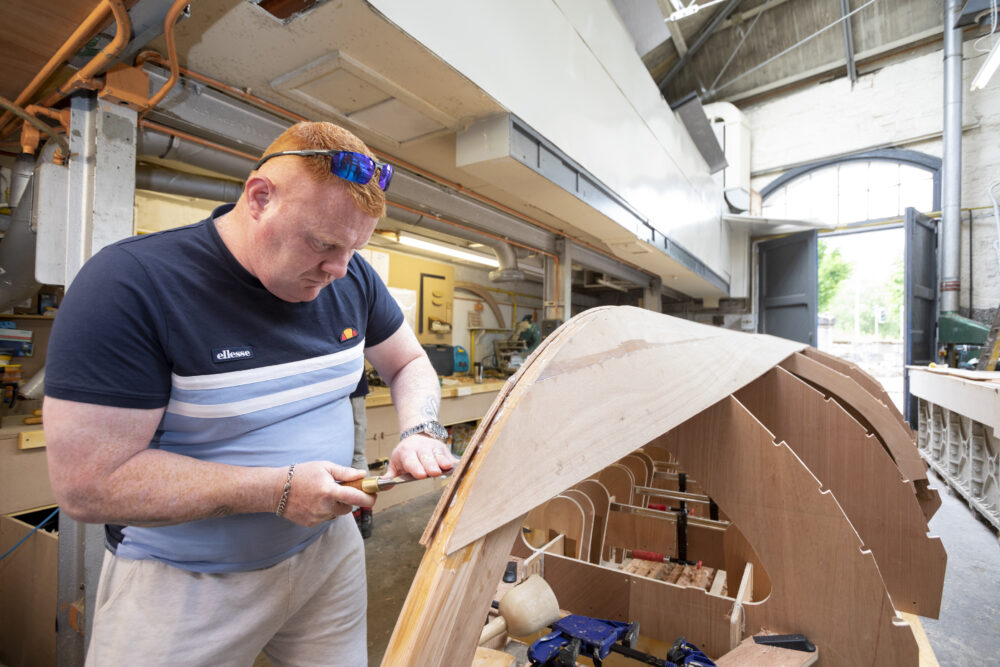 We fair – smooth out and level – the aprons and the hog to receive the first two planks. Now we fix the six planks to either side of the hull.
We fair – smooth out and level – the aprons and the hog to receive the first two planks. Now we fix the six planks to either side of the hull.
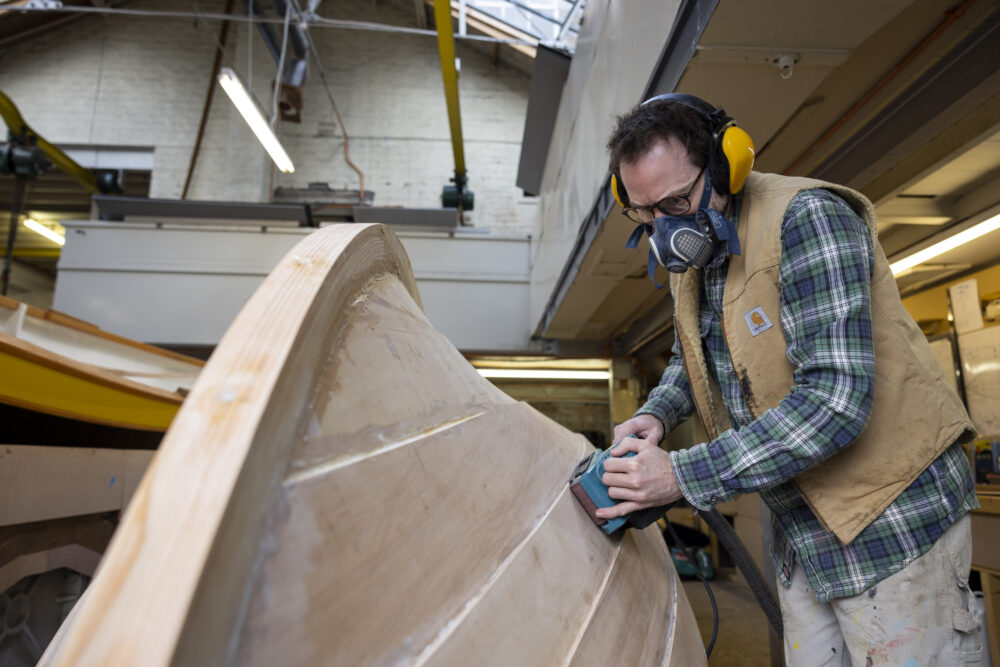 After, we fair the plank edges then fit the keel, stems and rubbing strakes. Then it’s sand, sand and sand in preparation for painting!
After, we fair the plank edges then fit the keel, stems and rubbing strakes. Then it’s sand, sand and sand in preparation for painting!
With the outer hull complete, it’s hull turning time and all hands to the pump as we carry the 155kg (24.5 stone) skiff, which weighs the same as a panda, out onto the grass, turn and bring it back in.
We’re halfway there!
 Now it’s outfitting – adding inwales, seats or ‘thwarts’, beams, cox’s seat and footrest and stretchers or foot plates.
Now it’s outfitting – adding inwales, seats or ‘thwarts’, beams, cox’s seat and footrest and stretchers or foot plates.
 We also add rouths (a wooden plate which adds additional strength to the inwale for the rowing system) and make the rudder and oars. Next, we paint the inside of the skiff.
We also add rouths (a wooden plate which adds additional strength to the inwale for the rowing system) and make the rudder and oars. Next, we paint the inside of the skiff.
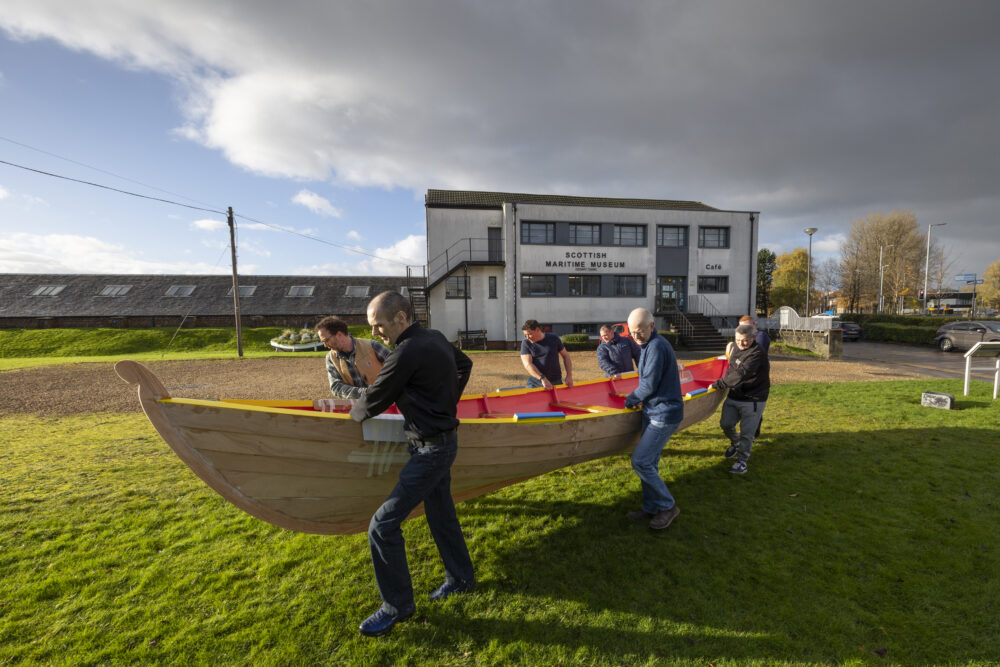 Then it’s about turn again….
Then it’s about turn again….
 ….to paint the exterior.
….to paint the exterior.
Phew….Launch time and a big pat on the back for everyone!
Join Dumbarton Rowing Club!
The Skylark IX Recovery Project hopes to establish a Dumbarton Rowing Club. If you’re interested in getting involved, we’d love to hear from you. Drop us an email at [email protected]










